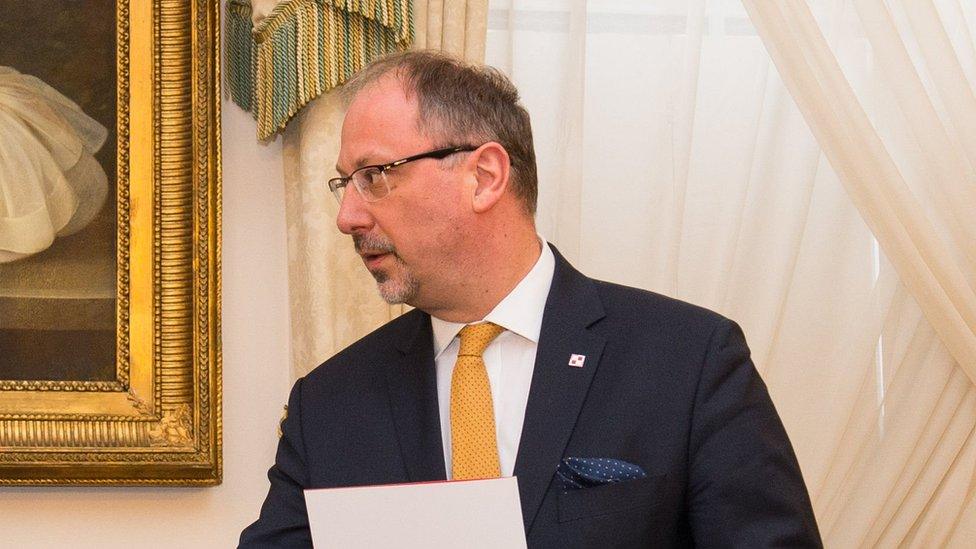Settled Status: 'I'm angry to be treated as a second-class citizen'
- Published
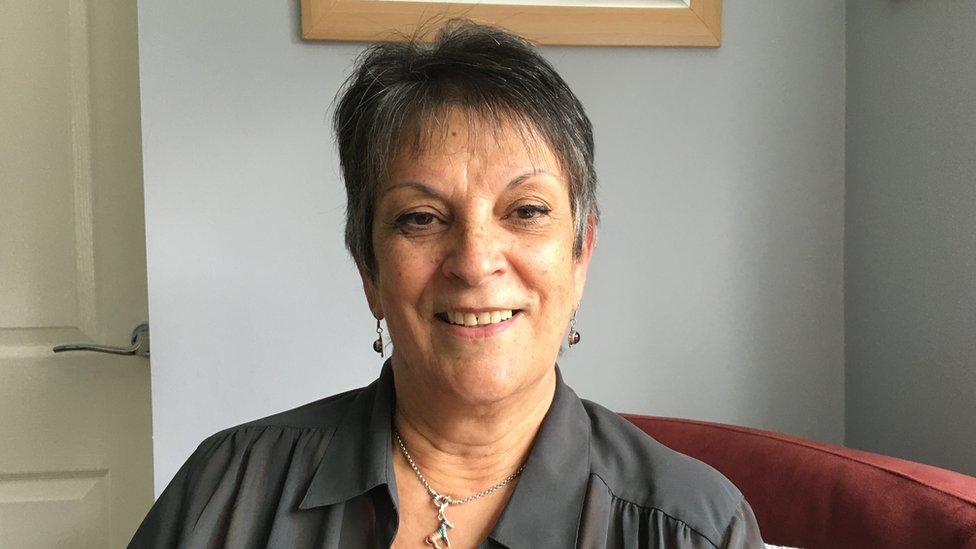
Tina Crolla Stewart is angry at both the process for applying and having to do it in the first place
Tina Crolla Stewart has lived in Scotland for 59 years but like thousands of other EU citizens she will have to apply for "settled status" after Brexit.
The scheme aims to help EU citizens and their families to live and work in the UK after freedom of movement ends.
But 71-year-old Mrs Crolla Stewart is angry at both the process for applying and having to do it in the first place.
"I never became a British citizen because I am proud to be Italian," she says.
"I have an Italian passport and there was never any need to apply for British citizenship.
"I was married to a Scot, I have Scottish children. Never in a million years did I ever think I would be in this position."
Mrs Crolla Stewart says she would never think of going back to Italy to live.
"My family is here, my home is here and my friends are here," she says.
"It makes me very angry that I have been treated like a second-class citizen."
There is little more than a month until 31 October, the date on which the prime minister insists the UK will leave the EU, deal or no deal.
EU Nationals living in Scotland currently have until 31 December 2020 to apply for settled status if the UK leaves without a deal, and 30 June 2021 if it leaves with a deal.
For many the ongoing uncertainty is stressful and some say it has been made worse by the UK government's online process for obtaining settled status.
Italian-Scots population
Scotland has long had a significant population of Italian-Scots, and Glasgow restaurateur Sandro Sarti says, even though many have been here almost all their lives and are now in their old age, they are having to apply to be allowed to stay.
"Some of these Italians came over when they were 10 or 15 years old and they are now maybe in their 70s," says Mr Sarti.
"They have never needed to think about doing anything like this and now suddenly they are asked to apply to stay."
He says it is insulting to people who are sometimes "more Scots than the Scots".
Mr Sarti says the older Scots-Italians are "not bothering" to apply for settled status.
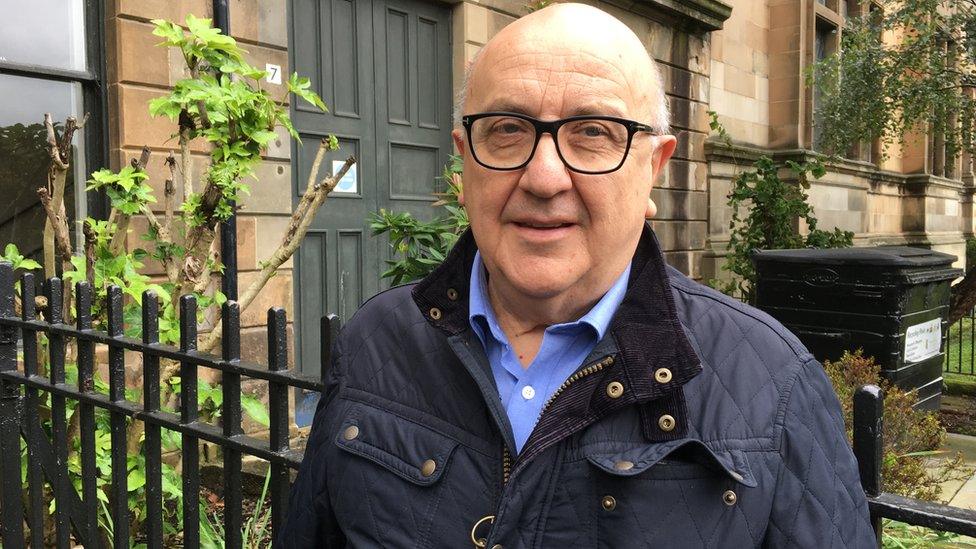
Adriano De Marco describes the process as a nightmare
Adriano De Marco, president of the committee looking after Italians in Scotland and Northern Ireland for the Italian Foreign Office, came to Scotland aged 14 in 1964. He says he is exasperated by a process which he describes as a nightmare.
"In my case they asked for five years of bank statements," he says.
"Nowadays all the banking is done online so you don't get a proper statement as such. The stress for older people in particular is serious.
"Lots of people say 'this is nonsense, I've been here for 50 years. It's nothing to do with me. I'm not going to do anything about it'."
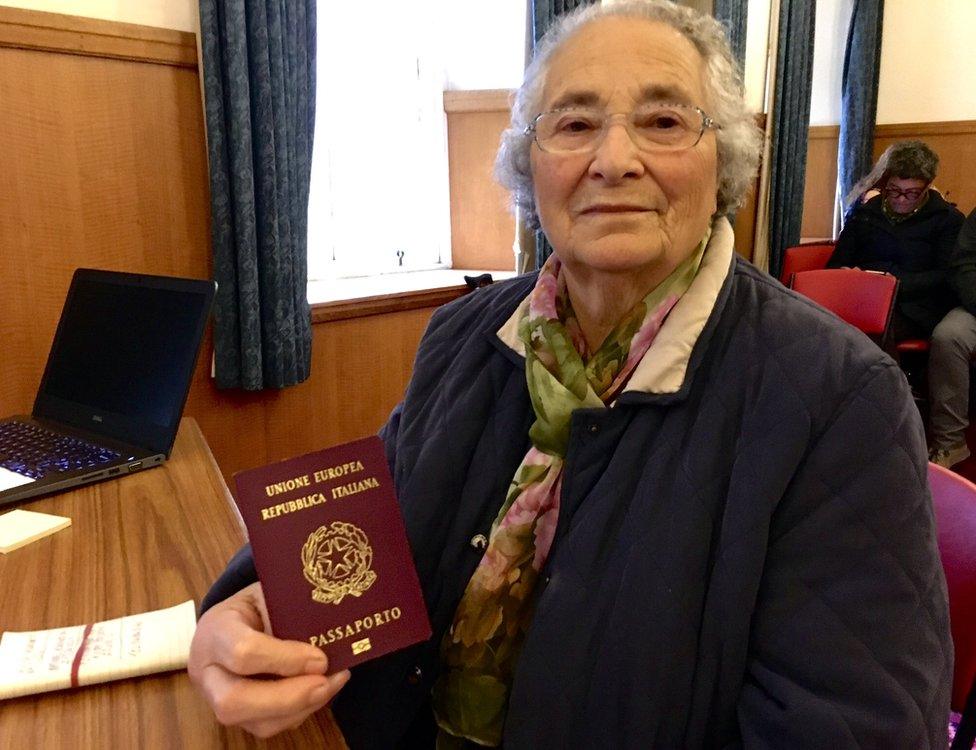
Anna Di Ciacca says she feels it is the right thing to do
At Partick Burgh Hall in Glasgow, there is a drop-in meeting which allows people to get advice on how to apply for settled status.
Anna Di Ciacca, 82, who has lived in Scotland for 70 years, say she accepts the process.
"I have been here since 1949. I was 12 years old when I came," she says.
Ms Di Ciacca says she finds the process complicated but she does not feel insulted.
"I feel it is the right thing to do," she says. "This is the law now and one must obey it. I always believe that the law is the law and that's it."

Sebastian Plocharski says applying is an easy process
Like the Scots-Italians, the Polish community also has long roots but the vast majority of Polish immigration has been through EU freedom of movement since 2004.
That means it is mostly younger people, such as multimedia designer Sebastian Plocharski, who are having to go through the settled status process.
Despite being young and tech savvy, he found the online process by computer complicated and switched to using the UK government's app for android phones.
He says: "It's actually very easy, the process is 10 minutes if you have your documents with you."
Mr Plocharski says his main complaint about the process is that he was not told anything about it until his friends started discussing it.
He put in his application about three weeks ago and is still waiting for a result.
So far only 27% of Poles living in the UK have submitted an application for settled status.
And rather than getting full settled status, 42% of EU nationals who have applied are ending up with pre-settled status, which while not an outright refusal, does gives them a five-year deadline to get their paperwork in order.
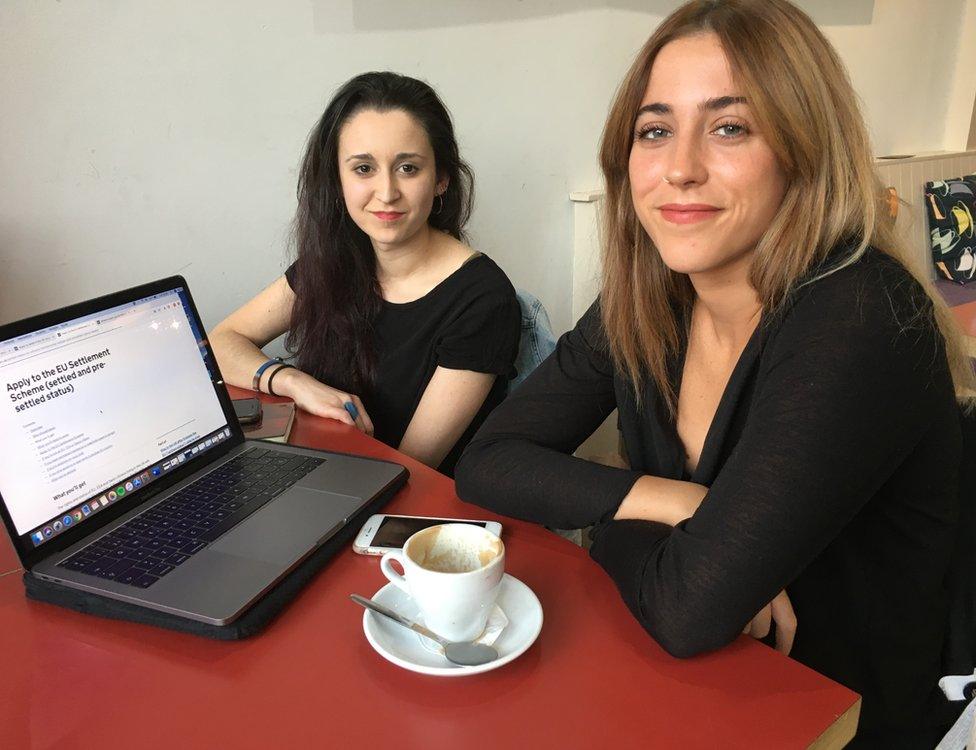
Cristina del Rio and Claudia Caviasca are baffled by the lack of an iphone app for the settled status application
For Cristina del Rio from Madrid and Claudia Caviasca from Malaga there was nothing difficult about the application process except the absence of an iOS app which would enable them to apply on their iPhones.
Claudia says it is "stupid" to have an Android app and not an iPhone version.
The Home Office blame compatibility issues with Apple for delaying the iPhone app, which they say should be released in late October.
They added that 1.5 million people across the UK have already applied to the EU Settlement Scheme and EU nationals have at least until December next year to do so.
The spokesman insisted there was plenty of support for elderly people, with a telephone call centre and face to face digital help at 300 locations across the UK.
He said the application process was "flexible" and a range of alternative documents could be accepted "in extenuating circumstances".
The dedicated helpline is open seven days a week on 0300 123 7379.
- Published22 August 2019
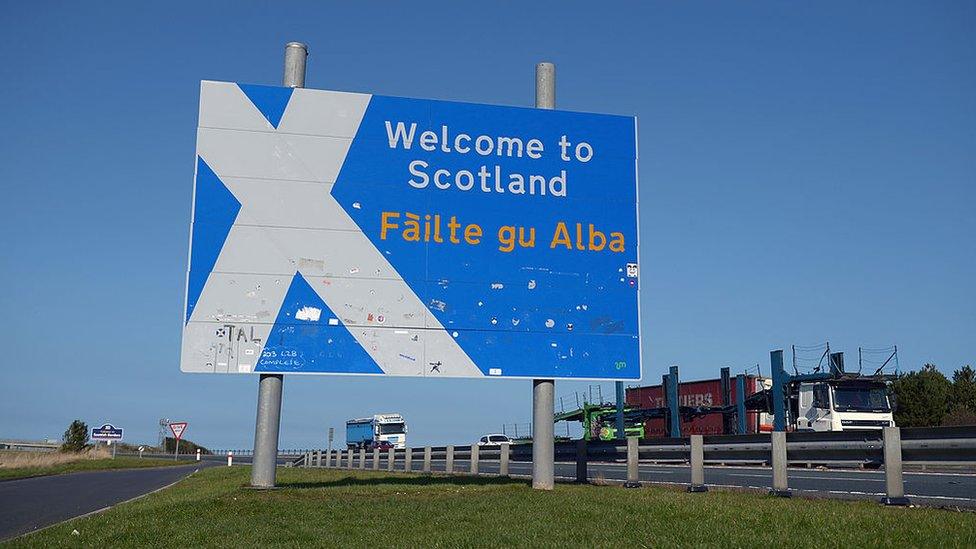
- Published18 September 2019
